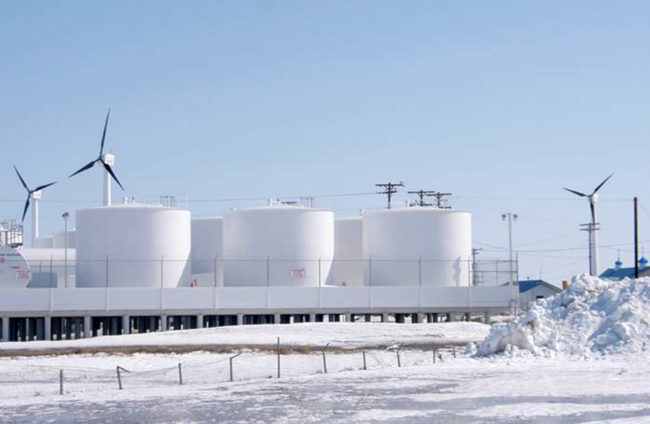
Isolated communities across the Arctic are looking at relying more on renewable energy. A new program aimed at helping rural areas make that transition is starting this month. Instead of bringing in experts, Arctic Remote Energy Networks Academy, or ARENA, is relying on local residents to lead the change.
George Roe says ARENA is largely a knowledge sharing program focused on rural areas with remote energy networks, or micro-grids as he likes to call them.
“The idea of learning from one another, asking each other questions, brainstorming. Because when you’re in the same space, you have great things to share with one another,” Roe said.
Roe works for the Alaska Center for Energy and Power at the University of Alaska Fairbanks. The arctic academy will appoint 20 fellows and is endorsed under the Arctic Council’s sustainable development working group. In between the in-person meetings and visits to several Arctic countries, participants will work with mentors and each other on renewable energy projects.
“I talked to several applicants who were concerned that ‘oh I don’t have a college degree, does that keep me away?’” he said.
Roe says they wanted to find people who could become champions for alternative energy and have credibility in their community.
“It was so fun, if you will, to talk with them and say no, you have a lot to offer to this program,” he said.
Roe says some training will be focused on community involvement. They want to make sure the work is a benefit to every resident.
“Because if the community doesn’t engage the overall project, it’s not going to be sustainable in the long run,” said Roe
Fellows were nominated either by themselves or by a participating organization and come from across the arctic, including Alaska, Canada, and Greenland. Nine of the 20 participants live in Alaska and are based all over the state.
“We got some from Southwest, we got some from Northwest, we got some from Western, we got some from the Interior. So it’s really quite gratifying to see the representation,” Roe said.
The full list of participants will be released by January 30th, and they will meet for their first in-person meeting this March in Yellowknife, Northwest Territories, Canada.
